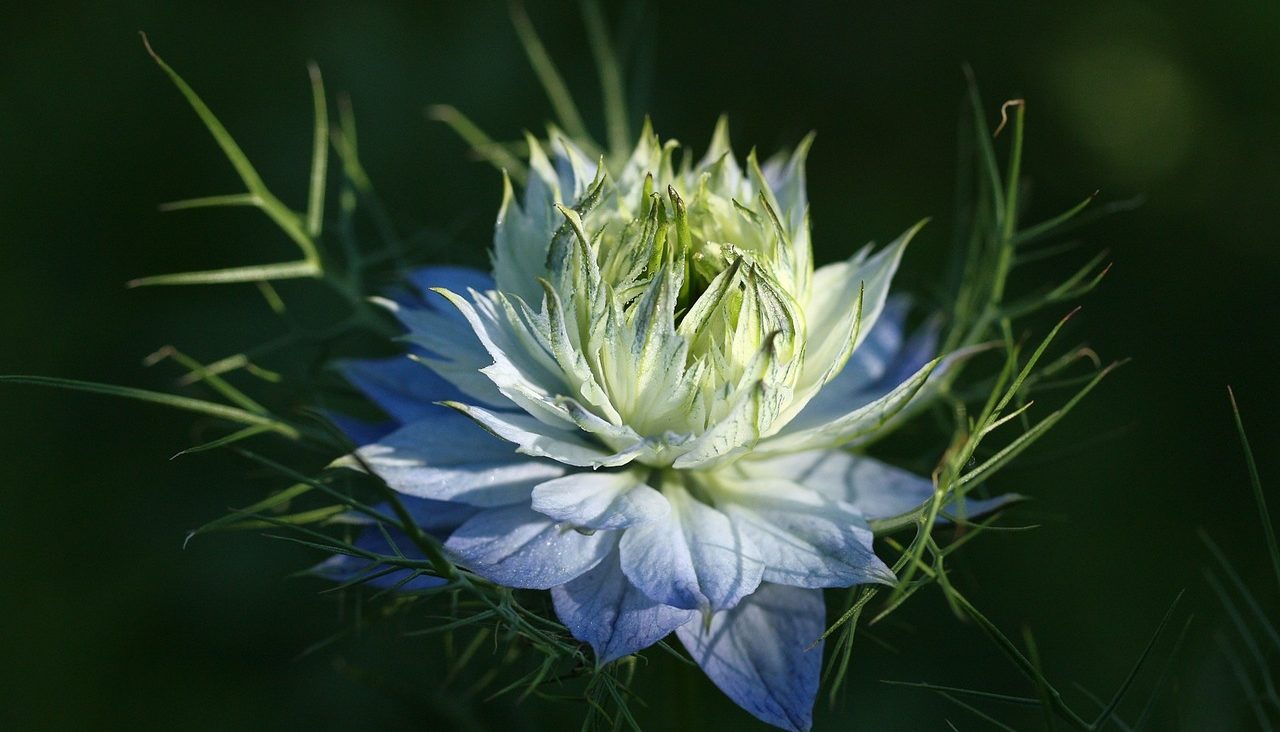The root of my mistake lay in having sought to ascertain Mr. Pocklathon’s thoughts on the matter. Mr. Pocklathon, I should have known by this point, is not the type to keep gossip to himself, and with his having passed on the substance of my unquiry by some underhand osmosis to Ms. Kemp in the next bed, news of my attraction to Ms. Marisa Frome became the talk of the greenhouse.
Now, this was not, you must understand, an idle infatuation. I had known Ms. Frome for years; we had attended Nursery together; we shared, as I saw it, many interests and qualities which would render us extremely compatible with one another.
However, leave it to Ms. Kemp to be the bearer of bad news. After I had endured several rounds of gossip, my toes in their nitrogen-enriched compost all but curling up in embarrassment, she leaned across the aisle to me and whispered, in a would-be kindly tone, “The thing is, dear, you don’t have any – ” and here she dropped her voice to a mere breath – “male flowers.”

The other occupants of the greenhouse heard, of course, and tittered quietly within their foliage.
I said, “I do not see this as an obstacle, Ms. Kemp.”
She drew in her fronds. Her face beneath the delicious light through the glass became darkened. “But… my dear, how will you procreate?” When I made no reply, she shaded her face still further and said in a whisper designed to carry, “Surely you don’t mean to say… you aren’t, surely, thinking of… grafting?”
A leafy shudder ran round the beds.
I said, somewhat stiffly, “I don’t think that is any of your business, Ms. Kemp.”
She grew affronted then, and withdrew the few pea-green tendrils which had begun to curl around my wooden supports. Mr. Pocklathon at this point intervened, saying to me, “Here, there’s no need to take that kind of tone with the lady. She’s merely pointing out the blooming obvious.”
“The narrow-minded,” I said (I was half-shouting now; a rage had spread like boiling sap up through my blood vessels), “the needlessly traditionalist, the unthinkingly hateful.”
To my own surprise, I began to feel my toes loosening within the soil. I flexed my feet in alarm and felt my roots move. Experimentally, I teased an ankle upwards; a sharp, tearing sensation streaked through my nerves, but my left foot came loose.
What a fright I would give them all now! Grimly setting my face in a smile, I pulled first one foot and then the other free of my compost, landing with ungainly imbalance on the walkway which separated the beds, scattering the concrete with soil. Faces turned towards me from all directions, petals unfolding in shock. I walked. Painfully and impractically, yes – on feet that had softened and furrowed into their outgrowing of synthetic grey roots – but still, I walked. I was heading for the far end of the greenhouse, for Ms. Marisa Frome’s row.
A few people called after me. Most stayed silent. From Mr. Pocklathon came a slight, inorganic noise, like a pair of shears grating against stone.
I reached Ms. Marisa Frome’s bed. She was drowsing in the late afternoon sun, her shoulder-leaves upturned to catch the pleasant mist from the overheard sprinklers. I said her name. It was beautiful to see her coming slowly awake, her neck unbending, her lovely face rising towards me as a flower stretches to greet the sun.
“Marisa,” I said steadily, “there is something I must ask you. Would you do me the honor of granting me your hand?”
“Why, Serena,” she said, “what a lovely dream I’m having! And how nice to see your face! But… It’s strange, but I seem to imagine you standing by my bed… As though you had uprooted yourself…”
Her beautiful face wrinkled into an expression of horror as she realized she was awake.
“What have you done?” she cried. “Serena, you’ll parch! You’re walking around! Are you not in pain?”
I was, indeed, in tremendous pain. When our ancestors first took to their flowerbeds and endeavored, through long and tortuous evolution and synthetic manipulation, to root their feet in the soil and thus become one with the Earth, their chief aim was to rid themselves of that capacity to feel pain which is the affliction of all ambulatory creatures. The moment the first amoeba detached itself from a rock wall somewhere in the ocean and began to float, its need for consciousness was born, and with consciousness came pain, or perhaps with pain came consciousness, for a creature that moves must be able to feel, able to suffer. A creature that is rooted, conversely, need only exist, blissfully, painlessly, soaking up the sun and the rain until ready to seed.
But I saw now that I would never have the opportunity to seed. Ms. Marisa Frome was staring at me in disgust, in revulsion; my feelings were not returned. In that instant my physical pain became nothing. Oh, foolish ancestors, if only you had known: the greatest pain is not of the central nervous system, but of the heart!
This story previously appeared in Silver Blade, Issue 52.
Edited by Marie Ginga
Katie McIvor's short fiction has appeared or is forthcoming in magazines such as The Deadlands, Uncharted, Interzone, and Three-Lobed Burning Eye, and her three-story collection is out now with Ram Eye Press. You can find her on Twitter at @_McKatie_ or on her website at Katie McIvor.

